Health Diet
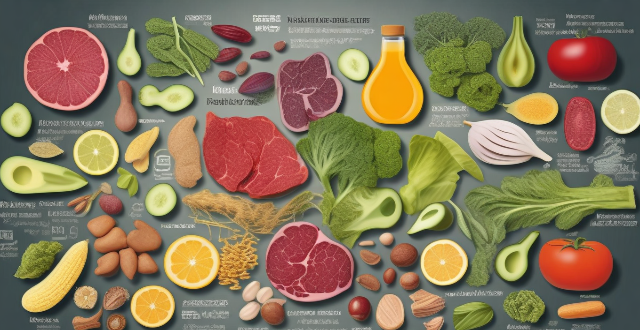
How does diet affect personal health ?
The article discusses the importance of a healthy diet in maintaining good health. It explains what constitutes a healthy diet and its benefits, such as reducing the risk of chronic diseases, improving mental health, managing weight, strengthening the immune system, and improving sleep quality. The article also provides tips for maintaining a healthy diet, including eating a variety of foods, limiting processed foods, watching portion sizes, being mindful of eating habits, getting enough sleep, and staying active.
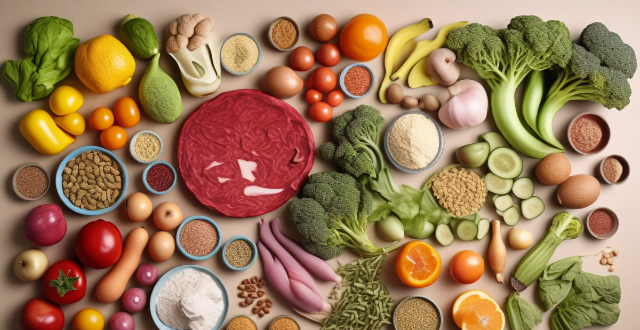
How can a healthy diet improve women's reproductive health ?
A healthy diet is crucial for women's reproductive health, affecting fertility, pregnancy, and menstrual health. Essential nutrients like folic acid and iron support conception and hormone regulation. Calcium, vitamin D, and magnesium can reduce PMS symptoms, while iron-rich and antioxidant-rich foods improve period health. During pregnancy, nutrients like folic acid and iodine are crucial for fetal development, and fiber and hydration maintain maternal health. A balanced diet can also prevent gynecological issues like fibroids and ovarian cysts. Additionally, weight management and mental health through a healthy diet promote overall well-being. Consulting healthcare professionals for personalized dietary advice is recommended.

Are there any health benefits to eating a gluten-free diet even if you don't have an allergy or intolerance ?
Eating a gluten-free diet has become increasingly popular in recent years, with many people choosing to eliminate gluten from their diets for various reasons. However, the question remains: are there any health benefits to eating a gluten-free diet even if you don't have an allergy or intolerance? ### Possible Health Benefits While the scientific evidence is limited and often conflicting, some studies suggest that a gluten-free diet may offer certain health benefits, even for those without celiac disease or gluten sensitivity. Here are a few potential advantages: 1. **Improved Digestive Health** - Some individuals report fewer digestive issues when they avoid gluten, such as bloating, gas, and diarrhea. 2. **Reduced Inflammation** - Gluten can cause inflammation in some people, which may contribute to chronic diseases like heart disease and diabetes. A gluten-free diet might help reduce this inflammation. 3. **Weight Loss** - Since many gluten-free products are lower in calories and fat than their gluten-containing counterparts, switching to a gluten-free diet could potentially lead to weight loss. 4. **Better Nutrient Absorption** - For those with undiagnosed gluten sensitivity, avoiding gluten may improve nutrient absorption and overall gut health. 5. **Increased Energy Levels** - Some people claim they feel more energetic after eliminating gluten from their diets, possibly due to improved digestion and nutrient absorption. ### Potential Downsides It's important to note that a gluten-free diet isn't necessarily healthier for everyone, and it can have its drawbacks: 1. **Nutrient Deficiencies** - Gluten-free foods often lack essential nutrients found in whole grains, such as fiber, B vitamins, iron, magnesium, and selenium. 2. **Higher Cost** - Gluten-free products tend to be more expensive than their gluten-containing counterparts. 3. **Processed Foods** - Many gluten-free alternatives are highly processed and contain added sugars, fats, and sodium to improve taste and texture. 4. **Social Challenges** - Dining out or attending social events can be more difficult on a gluten-free diet due to cross-contamination risks and limited menu options. 5. **Lack of Scientific Evidence** - There isn't enough research to support the idea that a gluten-free diet provides significant health benefits for people without allergies or sensitivities. ### Conclusion While a gluten-free diet may offer some potential health benefits for individuals without celiac disease or gluten sensitivity, these benefits are not guaranteed and should be weighed against the possible downsides. It's always best to consult with a healthcare professional before making significant changes to your diet, especially if you suspect you have an allergy or intolerance.
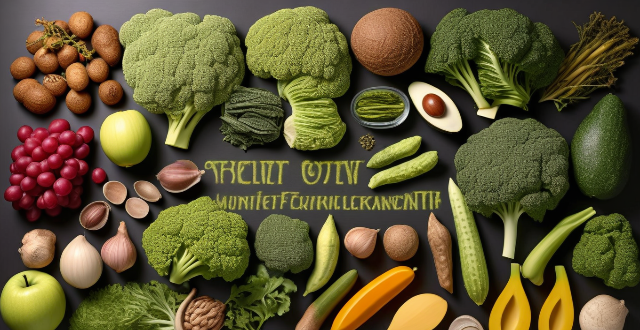
How does a balanced diet impact women's bone health ?
Balanced diet is crucial for women's bone health, including preventing osteoporosis. Key nutrients are calcium, vitamin D, protein, and phosphorus. Fruits and vegetables also support overall well-being.
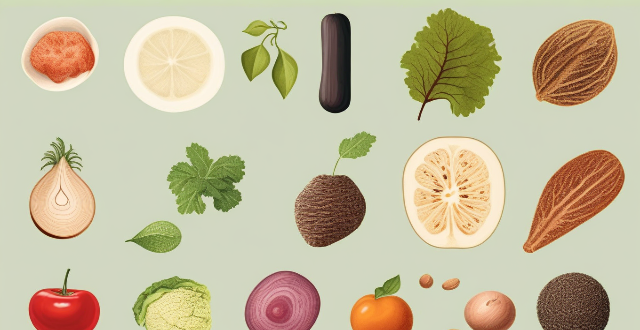
What kind of diet do celebrities follow ?
Celebrities maintain their physique and appearance through various diets, each with its benefits. Clean eating focuses on whole foods, boosting energy and digestion while aiding weight loss. The vegan diet eliminates animal products, reducing the risk of chronic diseases and improving skin health. The keto diet promotes rapid weight loss, increased energy levels, and reduced inflammation. While these diets work for some celebrities, individual needs vary, and it's essential to consult a healthcare professional before making significant changes to one's diet or lifestyle.
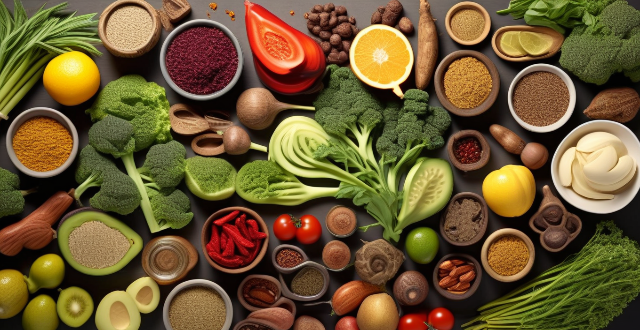
How can a balanced diet contribute to women's health ?
A balanced diet is crucial for women's health, providing essential nutrients, supporting reproductive health, managing weight, preventing chronic diseases, enhancing mental well-being, promoting bone and digestive health, and improving skin and hair health. By incorporating a variety of food groups, women can ensure optimal physical and mental well-being across their lifespan.
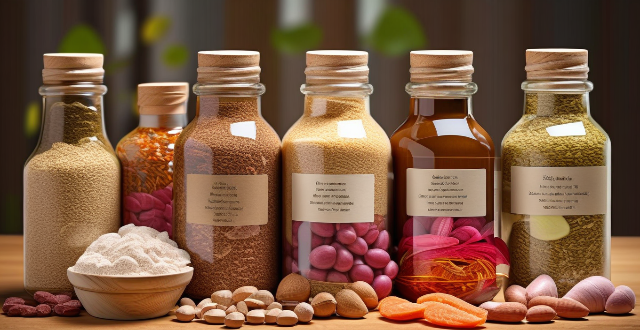
Can sports supplements replace a healthy diet ?
Sports supplements can enhance performance and provide targeted nutrients, but cannot replace a healthy diet. Whole foods offer complete nutrition necessary for overall health. Supplements may cause side effects and are expensive. Prioritize a well-balanced diet and use supplements judiciously to support specific goals.

How can women ensure they are getting enough calcium in their diet ?
Calcium is crucial for women's health, especially for maintaining strong bones and teeth. Women can ensure they are getting enough calcium by knowing their requirements, including calcium-rich foods in their diet, considering supplements if needed, and maintaining a healthy lifestyle with regular exercise and limited alcohol consumption. It's important to consult with a healthcare professional for personalized advice.

Can taking sports nutrition supplements compensate for a poor diet and lack of exercise ?
Sports nutrition supplements cannot fully compensate for a poor diet and lack of exercise. While these supplements can provide certain nutrients essential for athletic performance, they cannot replace the overall benefits of a healthy lifestyle. A balanced diet and regular exercise are crucial for maintaining good health and supporting athletic performance. Supplements should be used cautiously and with guidance from a healthcare professional to ensure they complement your overall lifestyle rather than replace it.
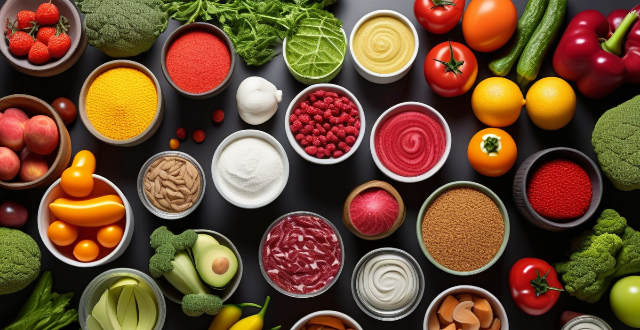
What are the health benefits of including more Chinese food in my diet ?
Incorporating Chinese food into your diet can offer a range of health benefits, including balanced nutrition, lower unhealthy fats, antioxidants and phytonutrients, heart health, weight management, digestive health, reduced risk of chronic diseases, variety and flavor. It's important to consume deep-fried items and dishes with high sugar content in moderation to fully reap the health rewards of Chinese cuisine.
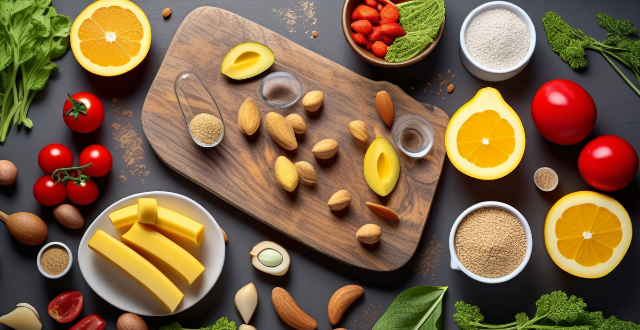
What are the benefits of using a personalized nutrition plan from a health management app ?
Using a personalized nutrition plan from a health management app offers benefits such as improved nutritional intake, weight management, reduced risk of chronic diseases, better mental health, increased variety in diet, convenience, and accountability.

What kind of diet do celebrities follow for a healthy lifestyle ?
Celebrities often follow specific diets to maintain their health and appearance, including the Mediterranean, Vegan, Paleo, Keto, Intermittent Fasting, Juicing, Plant-Based, Clean Eating, DASH, and Mindful Eating diets. These diets offer various benefits such as weight loss, improved heart health, better digestion, and enhanced mental clarity. Celebrities like Jennifer Aniston, Beyoncé, Matthew McConaughey, Halle Berry, Hugh Jackman, Salma Hayek, Ellie Goulding, Gwyneth Paltrow, Queen Latifah, Adele, and Jennifer Lawrence have incorporated these diets into their lifestyles.

Can diet and exercise affect memory according to scientific studies ?
Diet and exercise can positively impact memory, asDiet and exercise can positively impact memory, as a healthy lifestyle that promote cognitive while regular physical activity increases blood flow to the brain, reduces inflammation, and promotes the growth of new neurons. Conversely, a poor diet lacking in essential nutrients and lack of exercise can have negative effects on memory over time. Therefore, adopting a healthy lifestyle that includes a balanced diet and regular exercise is essential for maintaining good memory and overall brain health.

Which diet plans do celebrities follow to keep themselves fit and healthy ?
Celebrities are often seen as epitomes of fitness and health, inspiring millions to follow their lifestyle choices. One of the most significant aspects of their routine is their diet plan. Let's take a closer look at some popular diet plans followed by celebrities to maintain their physique and overall well-being: 1. Intermittent Fasting 2. Plant-Based Diet 3. Ketogenic Diet 4. Mediterranean Diet 5. Juicing Diet

What is a good marathon diet plan ?
A good marathon diet plan should provide the necessary nutrients and energy to support an athlete's training and performance during a marathon. It should include a high-carbohydrate diet, protein needs, and healthy fats. A high-carbohydrate diet should provide around 60-70% of total daily calories from carbohydrates, while protein needs should provide around 10-20% of total daily calories. Healthy fats should make up around 20-35% of total daily calories. Good sources of carbohydrates include whole grains, fruits, vegetables, legumes, and low-fat dairy products. Good sources of protein include lean meats, poultry, fish, eggs, nuts, seeds, and plant-based proteins like tofu and tempeh. Good sources of healthy fats include olive oil, avocados, nuts, seeds, fatty fish (such as salmon), and dark chocolate.
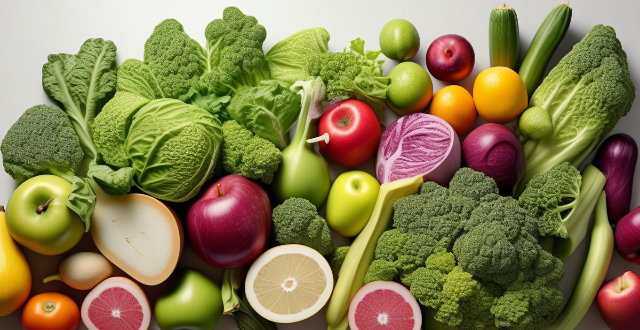
How can I improve my athletic performance through diet
Improving athletic performance through diet involves eating a balanced diet, increasing protein intake, consuming plenty of fruits and vegetables, drinking enough water, avoiding processed foods, eating before training or competition, and considering supplements. A balanced diet includes carbohydrates, proteins, and healthy fats in the right proportions. Protein is essential for building muscle and repairing damaged tissues, while fruits and vegetables are rich in vitamins, minerals, and fiber. Drinking enough water is crucial for staying hydrated during exercise. Avoiding processed foods can prevent harm to your performance and health. Eating before training or competition can provide energy and prevent fatigue. Supplements such as whey protein powder, amino acids, and BCAAs can improve performance but should be taken under the guidance of a nutritionist or doctor.
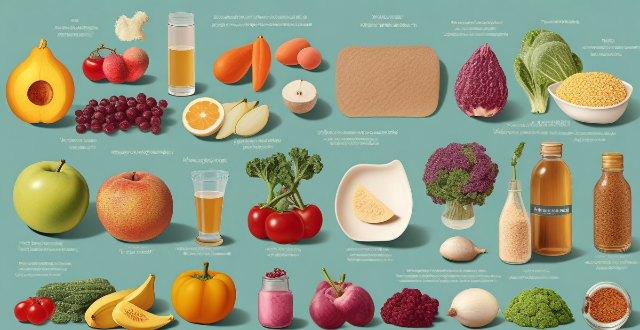
What are the potential risks associated with a high-fat diet ?
A high-fat diet, particularly one rich in saturated and trans fats, can pose several health risks. These include an increased risk of cardiovascular disease, obesity and weight gain, type 2 diabetes, liver disease, cancer, and digestive issues. It is essential to maintain a balanced diet that includes healthy fats while limiting the intake of saturated and trans fats found in processed foods and fried foods.

What are the benefits of a plant-based diet for women ?
A plant-based diet offers numerous health benefits for women, including improved cardiovascular health, weight management, cancer prevention, bone health, reproductive health, digestive health, skin health, and mental wellbeing. It is important to consult with a healthcare professional or registered dietitian when making significant dietary changes.
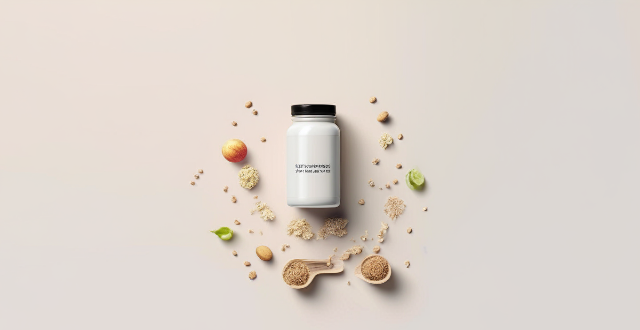
Are there any potential side effects of switching to a gluten-free diet ?
Switching to a gluten-free diet can have several potential side effects, including nutrient deficiencies, digestive issues, weight gain, headaches and fatigue, and higher cost. It is important to be aware of these potential side effects and take steps to ensure adequate nutrition on a gluten-free diet. Consultation with a healthcare professional is recommended before making any significant changes to your diet.
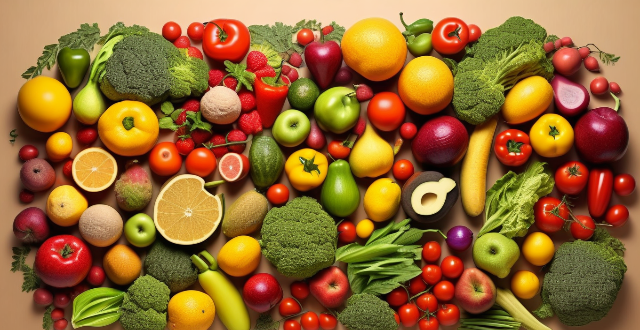
What are the benefits of including more fruits and vegetables in your diet ?
Including more fruits and vegetables in the diet can lead to improved nutritional value, better weight management, reduced risk of chronic diseases, a boosted immune system, and enhanced mental health. These foods are rich in vitamins, minerals, fiber, and antioxidants, which support overall health and well-being.

How can I incorporate more plant-based meals into my family's diet ?
Incorporating more plant-based meals into your family's diet can lead to improved health, weight management, and a reduced environmental impact. Here's how to do it: 1. **Understand the Benefits**: Improved health, weight management, and environmental sustainability are key advantages of a plant-based diet. 2. **Gradual Transition**: Start by replacing one or two meals per week with plant-based options to ease your family into the change. 3. **Meal Ideas**: Try Meatless Mondays, vegetable-centric dinners, and incorporating plant-based proteins like tofu and beans. 4. **Involve Your Family**: Get your family excited about the change by letting them choose recipes and shop for ingredients. 5. **Shopping Tips**: Buy fresh produce, stock up on staples like grains and legumes, and experiment with new foods. 6. **Education and Resources**: Use online resources like websites, YouTube channels, and cookbooks to learn about plant-based eating. 7. **Meal Planning and Preparation**: Plan weekly meals, consider batch cooking, and get creative with leftovers. 8. **Emphasize Flavor and Creativity**: Use herbs, spices, marinades, and sauces to add flavor, and don't be afraid to experiment with different cooking techniques.

Can following a vegetarian or vegan diet be considered healthy ?
A vegetarian or vegan diet can indeed be considered healthy, but it depends on how well-planned and balanced the diet is. Here's a detailed analysis: ## **Nutritional Requirements** ### *Protein* Vegetarians can get protein from sources like beans, lentils, tofu, tempeh, and dairy products. Vegans need to rely on plant-based proteins such as legumes, grains, nuts, and seeds. ### *Iron* Plant-based sources of iron include leafy greens, beans, and fortified cereals. However, the absorption rate of non-heme iron (from plants) is lower than heme iron (from animals). Consuming vitamin C-rich foods can enhance iron absorption. ### *Calcium* Vegetarians can get calcium from dairy products. Vegans need to find sources like fortified plant milks, tofu, and certain greens. ### *Vitamin B12* This nutrient is only found naturally in animal products. Vegetarians who consume dairy or eggs don't usually have a deficiency, but vegans must rely on fortified foods or supplements. ### *Omega-3 Fatty Acids* Flaxseeds, chia seeds, hemp seeds, and algae-based supplements are good sources for vegans. Vegetarians can also get it from fish. ## **Potential Health Benefits** - **Lower Risk of Chronic Diseases**: Studies show that vegetarian and vegan diets can reduce the risk of heart disease, high blood pressure, type 2 diabetes, and obesity. - **Healthier Weight**: Plant-based diets tend to be lower in calories and higher in fiber, leading to better weight management. - **Rich in Antioxidants**: Fruits, vegetables, whole grains, and legumes are rich in antioxidants, which help fight inflammation and cellular damage. ## **Challenges and Considerations** - **Nutrient Deficiencies**: Without proper planning, vegetarians and especially vegans may face deficiencies in certain nutrients like vitamin B12, iron, calcium, and omega-3 fatty acids. - **Limited Food Choices**: Avoiding entire food groups can make meal planning more challenging and limit variety. - **Social and Cultural Factors**: Eating out or attending social events where vegetarian or vegan options are not readily available can be difficult. ## **Conclusion** Adopting a vegetarian or vegan diet can be very healthy if it is well-planned and balanced to meet all nutritional needs. It's essential to ensure adequate intake of key nutrients that might be lacking in plant-based diets. Consulting with a registered dietitian can help individuals navigate these challenges and create a sustainable, healthy eating plan.

What are some easy ways to reduce sugar intake in my diet ?
Reducing sugar intake is crucial for a healthy lifestyle. Here are ways to reduce sugar in your diet: read food labels, avoid sugary drinks, choose whole foods, cook at home, swap sweet treats for healthier options, limit added sugars in beverages, and gradually reduce sugar intake. By following these steps, you can significantly lower your sugar consumption and improve your overall health.

Is it necessary to follow a high-protein diet for strength training
A high-protein diet can be beneficial for strength training, but it is not absolutely necessary as long as enough protein is consumed to support muscle growth and repair. Reasons for a high-protein diet include muscle repair and growth, increased metabolism, satiety, and improved recovery. However, the amount of protein needed varies based on individual factors, and general guidelines for intake during strength training are 0.8-1.2 grams per kilogram of body weight, with a source of protein consumed within 30-60 minutes after a workout. High-quality sources of protein should also be chosen.
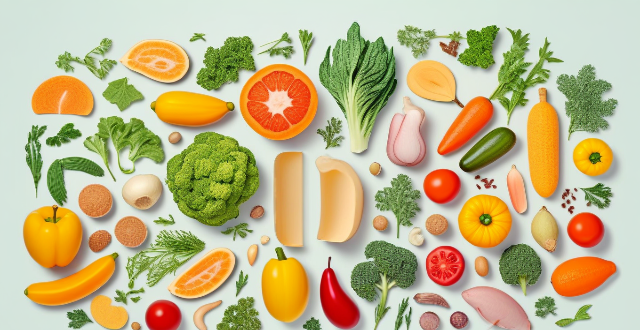
Can diet affect the health and appearance of my skin ?
Diet can significantly affect the health and appearance of your skin. Incorporating nutrient-rich foods such as fruits, vegetables, nuts, fish, and whole grains can improve skin quality. On the other hand, consuming high amounts of sugar or processed foods can lead to inflammation and premature aging. Hydration is also key for maintaining skin's moisture levels. It's essential to consider dietary choices as part of a comprehensive skincare routine.
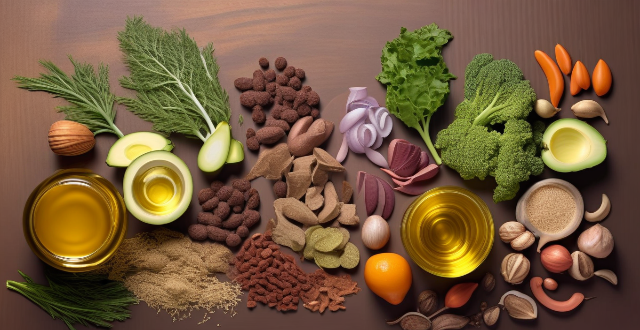
How does a balanced diet contribute to overall well-being ?
A balanced diet is essential for maintaining overall well-being, as it provides the body with the necessary nutrients, vitamins, and minerals required for optimal health and functioning. By consuming a variety of foods in appropriate portions, you can maintain a healthy weight, boost your immune system, support cardiovascular health, enhance brain function and mental health, promote digestive health, and support bone health. Some key nutrients that support these functions include lean protein sources, whole grains, fruits and vegetables rich in vitamins, minerals, and fiber, healthy fats found in nuts, seeds, avocados, and olive oil, omega-3 fatty acids, B vitamins, antioxidants, probiotics, calcium, and vitamin D.
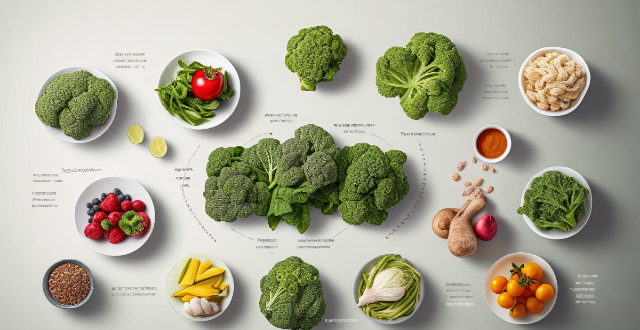
Are there any specific diets that enhance exercise efficiency ?
Yes, there are specific diets that can enhance exercise efficiency. These include a high-carbohydrate diet for energy, a low-fat diet for weight management and cardiovascular health, a high-protein diet for muscle recovery and maintenance, and a plant-based diet for optimal nutrient intake. Examples of foods in each diet category are provided, along with the benefits they offer for exercise efficiency. It is recommended to consult with a healthcare professional before starting any new diet plan.
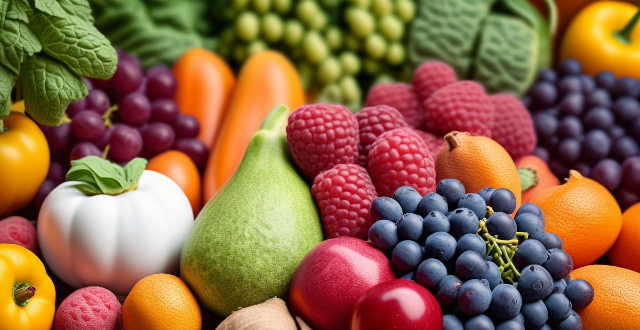
Is it true that certain superfoods can boost your immune system ?
Incorporating superfoods like citrus fruits, garlic, ginger, spinach, yogurt, nuts and seeds, blueberries, and turmeric into your diet can help support immune health by providing key nutrients such as vitamin C, vitamin D, zinc, protein, and antioxidants. These foods offer a range of benefits including boosting white blood cell production, reducing inflammation, supporting digestive health, and protecting against oxidative stress. However, it's important to maintain a balanced diet and lifestyle for overall immune support.

How do I ensure I'm getting enough nutrients on a vegetarian diet ?
This topic discusses the essential nutrients to watch on a vegetarian diet and provides tips for meal planning. It highlights key nutrients such as protein, iron, vitamin B12, calcium, vitamin D, and omega-3 fatty acids and suggests food sources for each. The text also emphasizes the importance of diversifying intake, considering supplementation, having regular check-ups, and working with a professional to create a balanced meal plan. Overall, it offers guidance on ensuring adequate nutrient intake while following a vegetarian diet.

How does nutrition affect women's fertility ?
Nutrition plays a crucial role in women's fertility, affecting both their physical and mental health. Being underweight or overweight can negatively impact fertility, as can a diet that is too low or too high in calories. Vitamins and minerals play important roles in hormone production and metabolism, and deficiencies in certain vitamins and minerals can negatively impact fertility. Eating a balanced, healthy diet that includes plenty of fruits, vegetables, whole grains, lean protein, and healthy fats can improve overall health and fertility. Excessive alcohol consumption, caffeine intake, micronutrient deficiencies, environmental factors like pollution and exposure to toxins, stress, and smoking can also negatively impact fertility. Maintaining a healthy diet, lifestyle, and environment can positively impact women's fertility by supporting overall health and hormone balance.